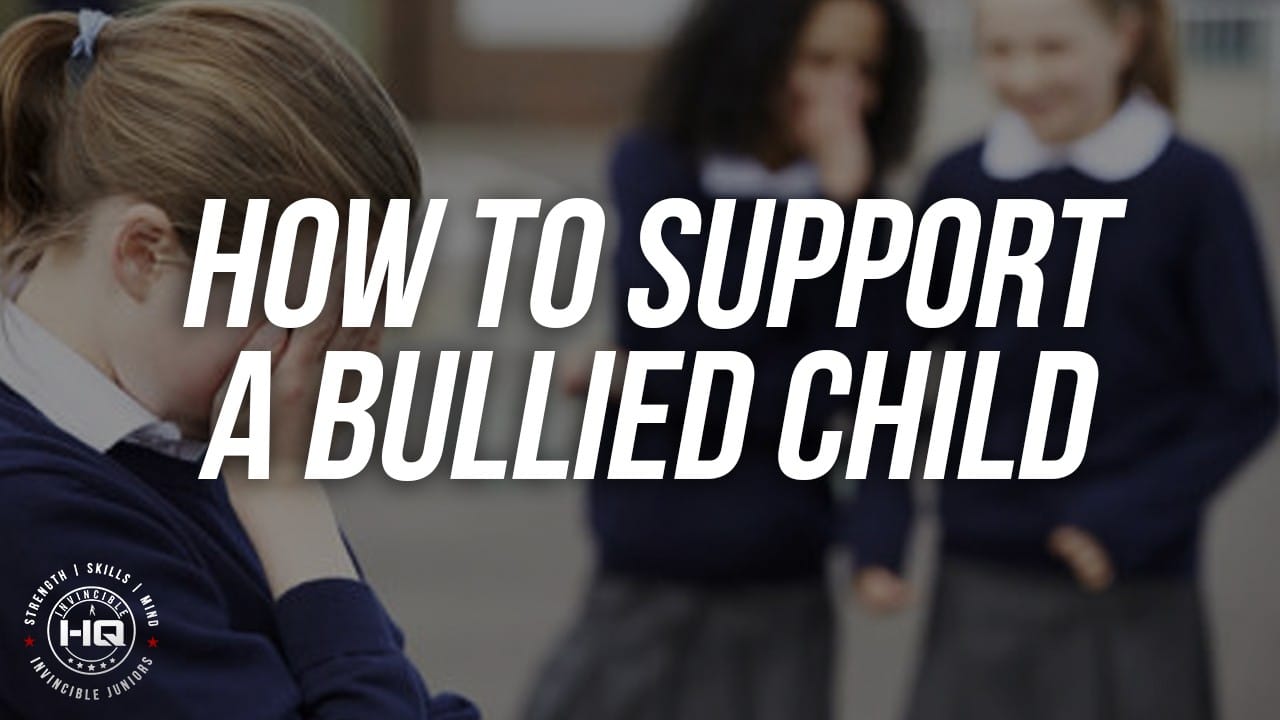It goes without saying that parents want to protect their children from harm, and see them develop into healthy, happy adults. It is therefore very distressing to witness the affect that bullying can have on a child.
The most important thing to remember is that with firm, immediate action, kids can be supported through a bullying situation. While individual experiences will influence the way your child is affected, in general, there are some universal steps all parents should take to support their child through bullying.
#1. Have an open conversation
If you suspect that your child is being bullied, or they have already told you of an incident, the first thing to do is have an open conversation. Try and follow these guidelines:
a) Speak in private:
Find a quiet time when you won’t be disturbed to discuss the different types of bullying (verbal, physical, emotional, cyber). Ask if they have ever experienced or witnessed any of the examples and encourage them to share details of any events with you.
b) Be patient, calm and understanding:
Do not make assumptions or interrupt. Put your feelings aside and really listen to what your child is telling you.
c) Reassure them:
Make it clear that the bullying is not their fault and praise them for being brave enough to confide in you. Assure them that now you know what is happening, together you will sort it out.
d) Give support and trust:
Explain to your child that it might be necessary to talk to the school, but promise not to take action without discussing it with them first. Openly explore the options together, and come to an agreed course of action.
#2. Teach them how to cope
Children that bully others often ‘test’ potential targets to see how they respond, and while the target is never to blame, those who appear vulnerable usually continue to be bullied. It is for this reason that alongside reporting to the school, teaching your child how to be assertive can be an effective way to help them.
We will be covering strategies in classes to help kids stand up to bullying assertively.
#3. Behaviours to avoid
It can be very overwhelming when you discover your child is facing a bullying situation. In order to respond effectively and give your child the support they need, it is important that you put aside any anger or assumptions. Please bear in mind the following:
a) Do not act aggressively:
Storming into the school or confronting the child or children involved/ or their parents and carers will be the reaction your child has been dreading, and may make the bullying situation worse.
b) Do not dismiss their experience:
Telling a child to ignore the bullies or dismissing the experience as just ‘a part of growing up’ will not stop the bullying. These messages teach them that bullying should be tolerated rather than confronted. The effects of bullying can be devastating, so it is imperative you give your child the appropriate help.
c) Do not promote retaliation:
Instructing a child to fight back can place your child in further danger, or result in the school labelling them as the problem. Refer to our advice above for positive ways your child can deal with bullying behaviour.




